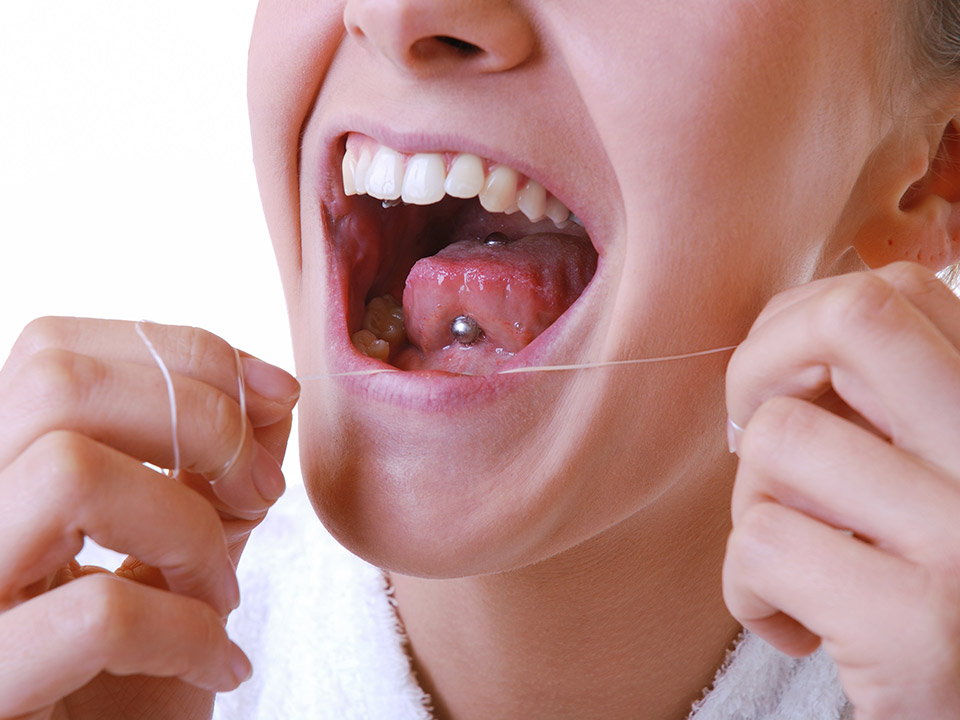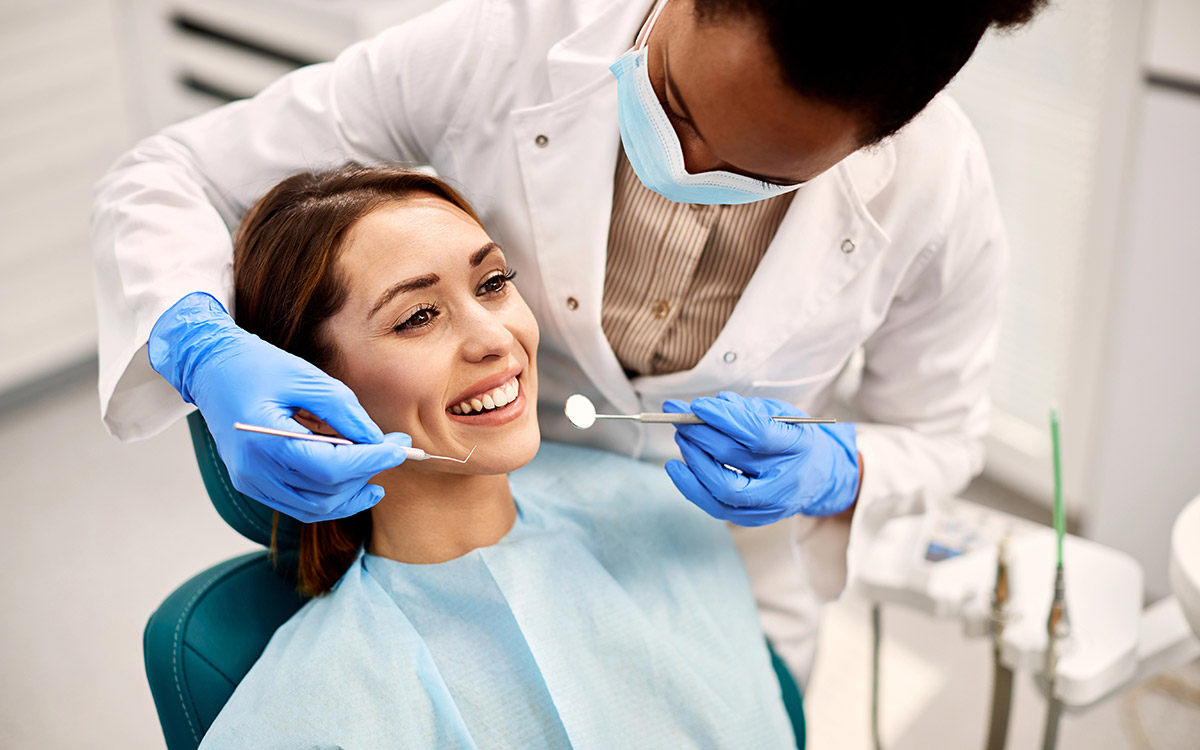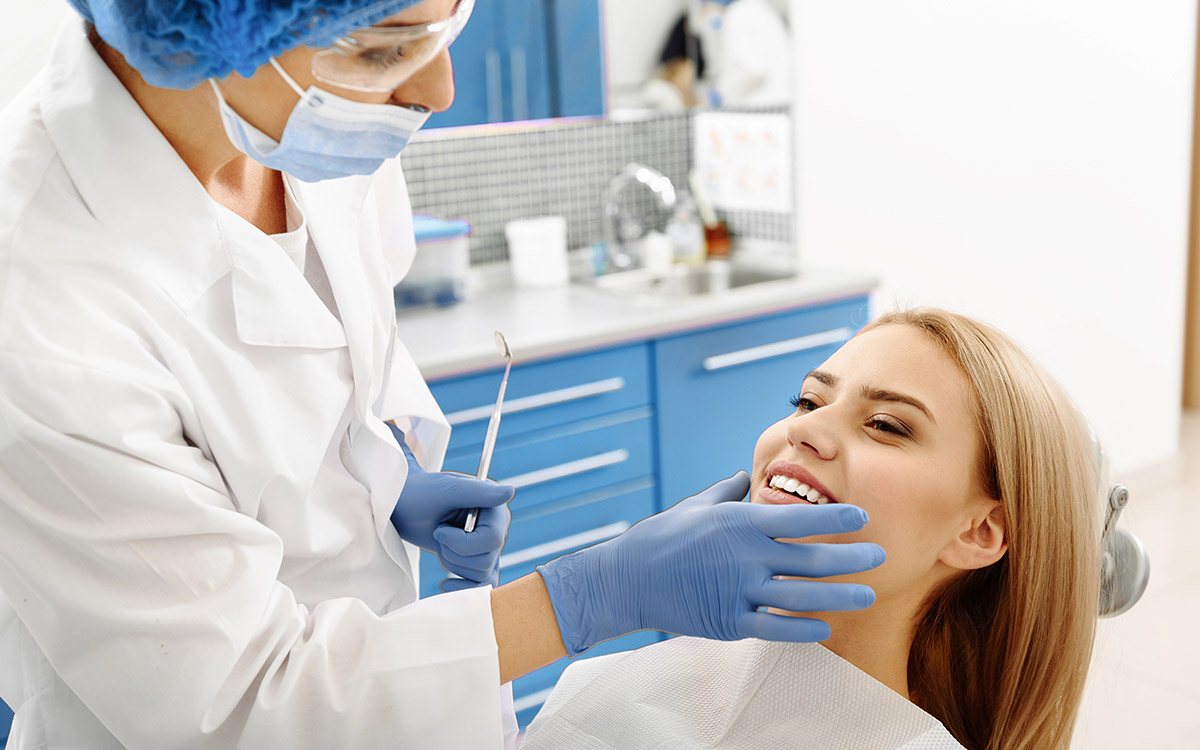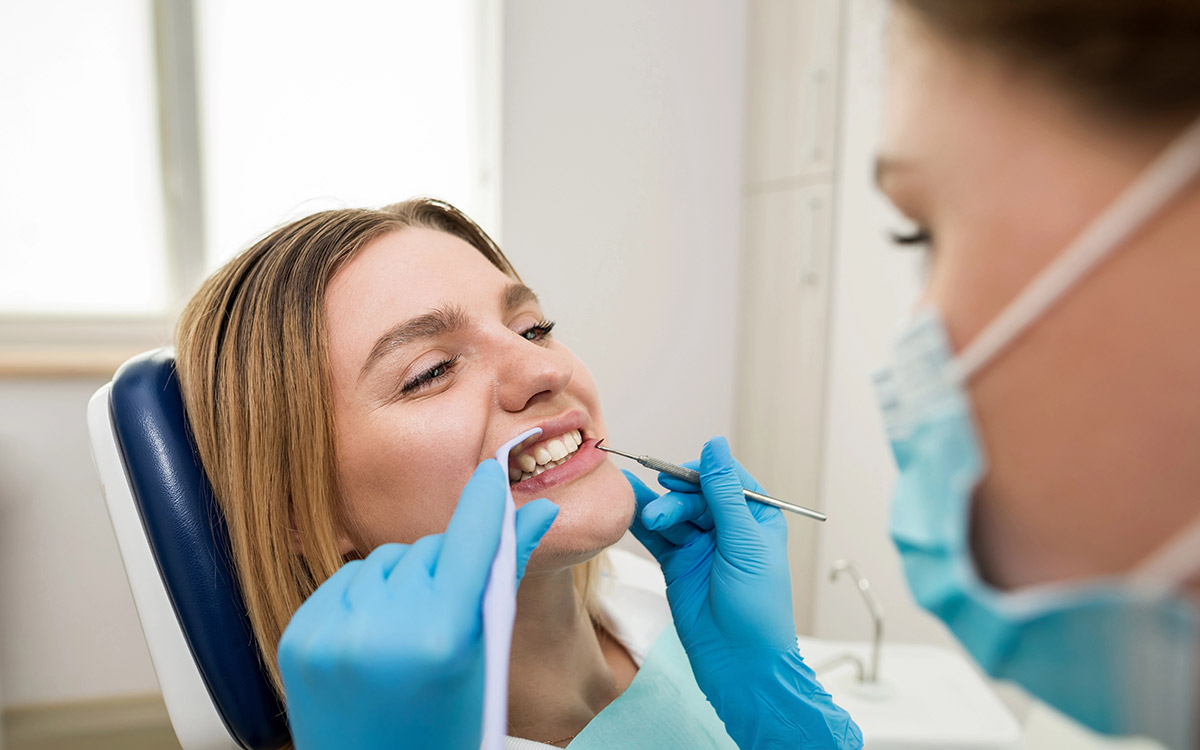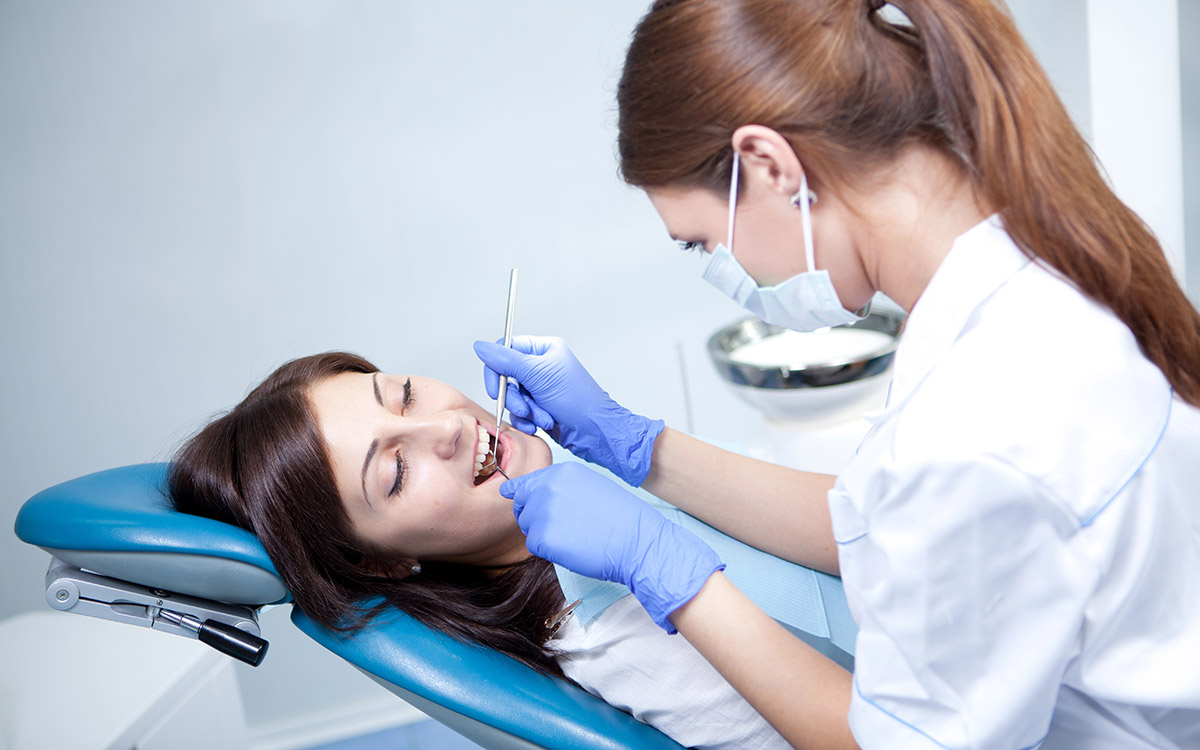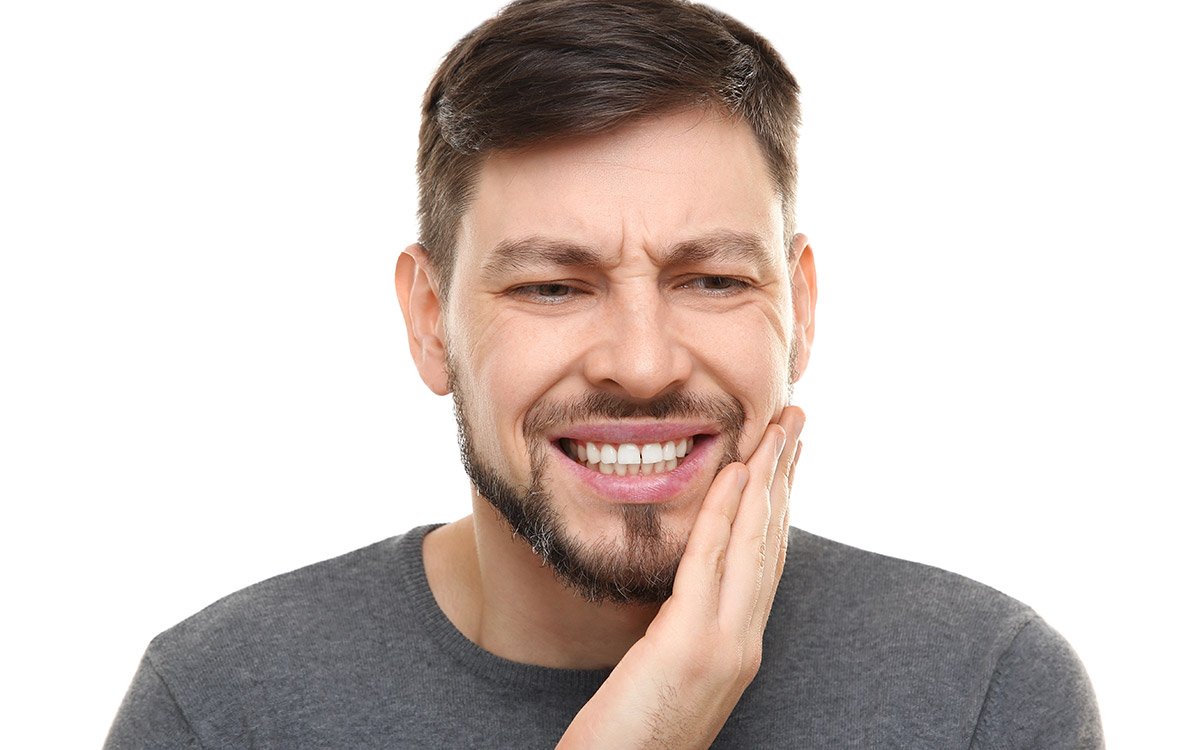Are you thinking of getting a tongue, gum, or lip piercing? It is a stylish and excellent accessory to have. But have you ever wondered if it would affect your dental health?
Do not get us wrong; we believe that self-expression is essential to everyone. And if you love body modification, then you should explore your options.
However, we would not be doing our job if we did not tell you some of the risks of having oral piercings. We take care of your smile after all.
So let us get down to business and talk about oral health and piercings.
What Is An Oral Piercing?
An oral piercing is any piercing done to the cheek, tongue, lip or soft tissues in your mouth. Lip and tongue piercings are the most common form of oral body modification.
How Do Oral Piercings Affect Oral Health?
The most common complications associated with any form of piercing, including oral piercings, are bleeding and swelling. Bleeding starts immediately after the procedure, while the swelling will come later.
However, other severe complications might arise after getting your piercing. Some of these complications include:
Continued Swelling And Inflammation
Though a bit of swelling is normal, you can have severe swelling and inflammation in other cases. Swelling can lead to irritation and sensitivity of the gums, tongue, and teeth.
Likewise, swelling and inflammation can also be life-threatening. Severe tongue swelling is a substantial oral problem as it can lead to blockage of your airway.
If your swelling continues, do not hesitate to seek medical attention.
Infections
If you have ever had a piercing, you know the importance of keeping it clean. However, oral piercings are slightly different and have a higher infection rate.
The moisture in your mouth makes it a habitable home to bacteria. In most cases, these bacteria are harmless and go unnoticed. However, a tongue or lip piercing is another case.
Open wounds in your mouth become an ideal breeding ground for bacteria. This might lead to infections in your gum, lip, or tongue.
Secondly, oral infections can also profoundly affect your general health. These types of conditions are known as secondary infections. Bacteria from your mouth can find their way into your bloodstream, causing heart and respiratory infections.
Some of the signs of infections include inflammation, swelling, pain, sensitivity, fever, and chills.
If not treated quickly and adequately, oral infections can become a huge health problem. Make an appointment with All About Smile Dental Group if you notice any signs of infection.
Teeth And Gum Damage
Do oral piercings damage teeth? The short answer is yes!
Your jewelry can harm your overall teeth structure. Continuous grinding of your teeth on the jewelry can cause wearing and cracking. Your teeth are at a higher risk of chipping if you have an oral accident.
In addition, piercings can be very irritating to your gums. You may develop tissue damage with increased irritation, resulting in gum infections.
Muscle And Nerve Damage
Oral piercings on soft tissue and muscles can be a risky business. Continued swelling and infections can lead to nerve and muscle damage.
For tongue piercings, you might experience numbness and problems moving your tongue. It may also result in your loss of taste. It can go away after a while, or the condition might be permanent.
Tongue piercings may also result in damage to your tongue’s blood vessels. This can lead to blood loss, which, if not treated, will cause tissue damage and death.
Gum Recession
You might be wondering if your tongue piercings cause gum recession. Unfortunately, the answer is yes.
Continually rubbing your oral piercing against your gum might cause it to recede. In other severe cases, the recession can lead to tooth loss.
Excessive Saliva Production
Excessive saliva production is widespread, especially when you have a tongue piercing. It may result in having trouble chewing, swallowing, or talking. Do not be surprised if you often find yourself drooling.
Allergic Reactions
It is not uncommon to have hypersensitivity and allergic reactions to some metals and jewelry. Allergic reactions can lead to shock or other life-threatening conditions in severe cases.
Dental Procedures And Checkups
Finally, your new piercing might give you trouble during your oral examination. During your exam, piercings interfere with X-rays, which might prevent us from seeing any problems with your gum or teeth. You always have to take off your oral jewelry for oral X-rays.
How Should You Take Care Of An Oral Piercing?
The first thing you have to do is keep all your piercings clean. But as we said before, it is never that easy when it comes to oral hygiene.
- Make sure to gently brush your teeth twice a day, once in the morning and in the evening.
- Drink plenty of water as it helps clean your mouth.
- Avoid any food or drinks with sugar, as it might increase the bacteria in your mouth, leading to infection.
- Avoid putting any objects into your mouth as they might be harboring bacteria.
- Avoid smoking or chewing tobacco as it restricts blood flow in your body, slowing the healing process.
- Do not rotate or play around with your jewelry.
How Do You Stop Your Gums From Receding After An Oral Piercing?
In most circumstances, getting your gum tissue back after it recedes is tough. There is, however, some good news. With the right therapy, we may be able to stop the course of gum recession.
Gum Cleaning
The most common way to treat a receding gum is through root planing and scaling. The treatment involves cleaning out bacteria from your gum and restoring damaged gum tissue.
Gum Grafting
Secondly is dental surgery. The procedure is relatively simple. We restore damaged gum tissue during the surgical treatment by taking other health samples and replacing the missing tissue. This will restore your gum appearance and have your healthy smile back.
It is always essential to make regular visits to your dentist to check and monitor your piercing and oral health.
If you have any questions about dental health and hygiene, we are here to help. Do not hesitate to give All About Smile Dental Group a call.

